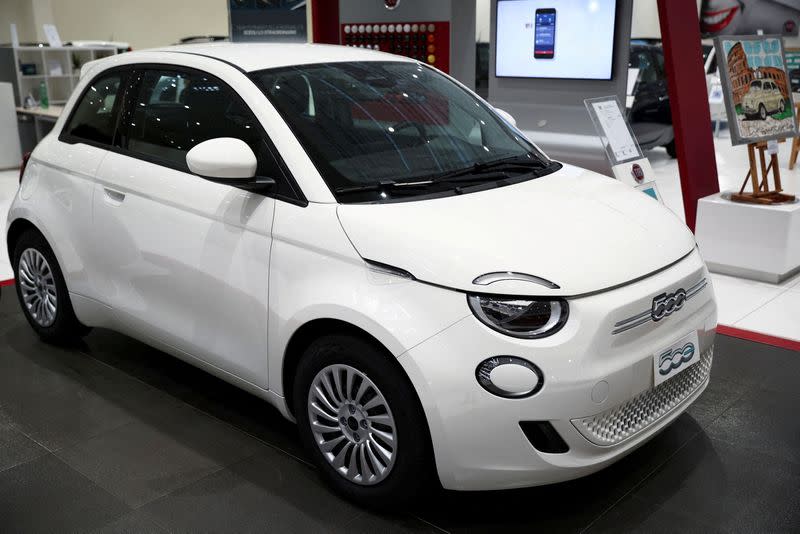Stellantis dealers oppose EU 2025 emission targets

MILAN (Reuters) - European dealers for Stellantis said they supported a proposal, launched by European auto lobby ACEA, to delay intermediate carbon emission reduction goals the European Union set for next year as market conditions do not support them.
"We firmly believe that the CO2 reduction targets set for 2025 are unfeasible under current market conditions," four groups representing European dealers for Stellantis said in a letter addressed to EU Commission chief Ursula von der Leyen.
Their position put them at odds with Stellantis itself and is another headache for the automaker's CEO Carlos Tavares, who is under pressure to revive the group's finances after months of declining market shares and inventory build-up.
Tavares has confirmed a pledge to meet the EU targets and said last minute changes to the regulation were unfair.
Stellantis last week issued a profit warning for its full-year results, and forecast a widely negative cash flow this year.
The four groups, which sell cars of brands including Peugeot, Jeep, Fiat, Alfa Romeo and Citroen, called for a postponement of the 2025 targets, which could cost automakers billions of euros in fines if not met.
"These fines would inevitably lead to a reduction in production volumes within the EU, which in turn will drastically decrease the volumes we, as distributors, can sell," they said in the letter seen by Reuters.
Amid soft global demand for electric vehicles (EVs), ACEA's proposal is backed by other automakers including Renault, whose CEO Luca De Meo is also the lobby's president. Stellantis is not part of ACEA.
"Stellantis' distribution networks are experiencing significant challenges in meeting the stringent targets for EV sales, imposed by both the manufacturer and upcoming EU regulations, while market conditions do not yet support such volume growth," the dealers' groups said.
They added issues such as high prices as well as an insufficient charging infrastructure were "not aligned" with the current customer needs.
"We are in daily contact with end customers who frequently reject EVs due to concerns over price, range, and accessibility".
(Reporting by Giulio Piovaccari; Editing by Keith Weir)